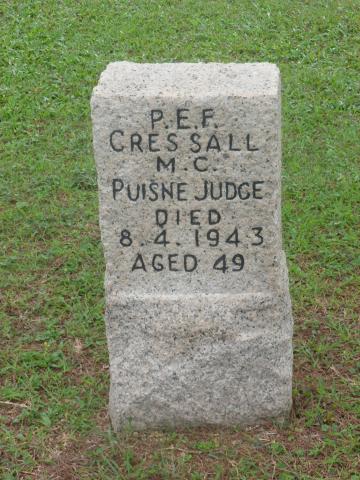Death of Paul Ewart F. Cressall.
Before the war he was Puisne Judge and was in charge of the enquiry into allegations of corruption in the building of air-raid shelters. He took the unpublished report with him into Stanley, but it disappeared after his death.
Red Cross Delegate Rudolf Zindel makes a full-day visit to Stanley and talks to 84 internees. Not surprisingly he finds 'rations' still the main focus of interest, although he is able to report a 'doubling' of the flour issue: the basis will now be 8 ozs. of rice and 4 ozs. of flour per day. He notes another piece of good news - the bathing-beach will be open from May 2.
However, he also notes the internees' disappointment that he wasn't able to pay any 'pocket money' during April as the necessary funds have been held up in Tokyo since March.
Sources:
Cressall: Geoffrey Emerson, Hong Kong Internment, 1973, 271
Zindel: 'Delegation Report for April 1943' p. 1 attached to General Letter No. 45/43, 7 May 1943 in Archives of the International Red Cross (Geneva)
Note:
By the time of the May report Zindel is in a 'desperate' financial situation because the funds still haven't reached Hong Kong. This is presumably the period referred to by Emily Hahn when for more than two months the Japanese closed down the activities of the Tokyo Delegation because they caught them 'juggling' with Red Cross funds to profit from the exchange rates (Hahn, China To Me, 384). However, it shouldn't be assumed that this was for private profit - as Hahn implies it was. It might have been, but it could also have been to make their money go farther in the relief of distress. From the autumn of 1944 Rudolf Zindel would be forced to pay for his own family's upkeep and to make sure he had enough money to fulfil his Red Cross commitments by raising black market loans against the promise of repayment in Swiss Francs when the war was over. After April 1945 Zindel received no more remittances from Tokyo so he financed the entire Hong Kong operation by borrowing against his personal Swiss bank accounts. Hahn's inaccurate and biased treatment of Red Cross activities is sadly not untypical of the thanks he got!
